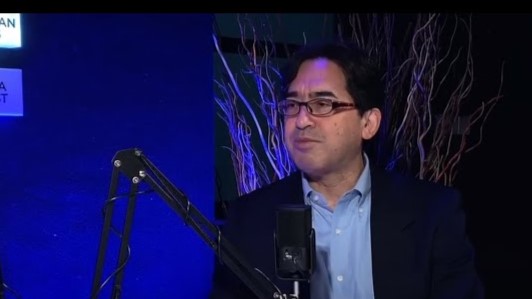KUALA LUMPUR – A former United Nations human rights official has urged the Malaysian government to reconsider having investment firm BlackRock Inc onboard Malaysia Airport Holdings Bhd (MAHB) through a subsidiary.
Prof Saul Takahashi, in a video message, called it “unconscionable” that the Malaysian government, which has been outspoken in its support for Palestine, could even consider allowing BlackRock, which funds weapons manufacturers, to have ownership of Malaysia’s airports.
“BlackRock is a major funder of the United States’ military; industrial complex and an enabler of the Israeli genocide that is taking place in Palestine right before our eyes.
“The chief executive officer of Black Rock is also a well-known and outspoken supporter of the Zionist apartheid regime.
“That the Malaysian government would even consider doing this is particularly shocking, given the government’s strong support, or at least strong stated support for the Palestinian cause over many years.
“I very much hope that the Malaysian government will reconsider this decision and refrain from doing any business with Israeli genocide enablers,” said Takahashi, who is currently a professor of Human Rights and Peace Studies at Osaka Jogakuin University, Japan.
His video message was posted by the BDS (Boycott, Divestment, Sanctions) Malaysia group on X.
Takahashi was deputy head of office for the UN High Commissioner for Human Rights and Occupied Palestine from 2009 to 2014.
MAHB’s privatisation deal maintains Khazanah Nasional Bhd and the Employees Provident Fund as its two largest shareholders, with 70%.
However, both government-linked funds are in a consortium to take MAHB private with BlackRock-owned subsidiary Global Infrastructure Partners (GIP) and the Abu Dhabi Investment Authority, which together will own only 30% equity.
Despite this, critics have continued to oppose the deal on grounds of BlackRock’s ownership of GIP, as BlackRock is a known investor in weapons firms that supply arms to Israel.
Meanwhile, Investment, Trade and Industry Minister Datuk Seri Tengku Zafrul Tengku Abdul Aziz was reported to be likening BlackRock’s ownership of MAHB shares through GIP to the investment firm’s equity in Apple Inc.
Free Malaysia Today reported Zafrul defending the government’s decision to allow BlackRock to own shares in MAHB by saying that those who were strongly against it should also not use Apple products.
“All of you who own Apple (products), if you really feel strongly, shouldn’t be using them. Who is the biggest shareholder of WhatsApp? Who is the biggest shareholder of Facebook?
“So, where do we draw the line?” FMT reported him saying this at a town hall meeting at the University of Malaya today.
He also said that the sovereign wealth funds from Abu Dhabi, Kuwait, Saudi Arabia and Qatar owned shares in BlackRock, besides noting that the firm is a listed company and not owned by Israelis.
On March 4, opposition lawmaker Wan Ahmad Fahysal Wan Ahmad Kamal raised concerns in the Dewan Rakyat about BlackRocks involvement in the MAHB privatisation deal, noting its support for Israel’s genocide of Palestinians. – June 2, 2024

